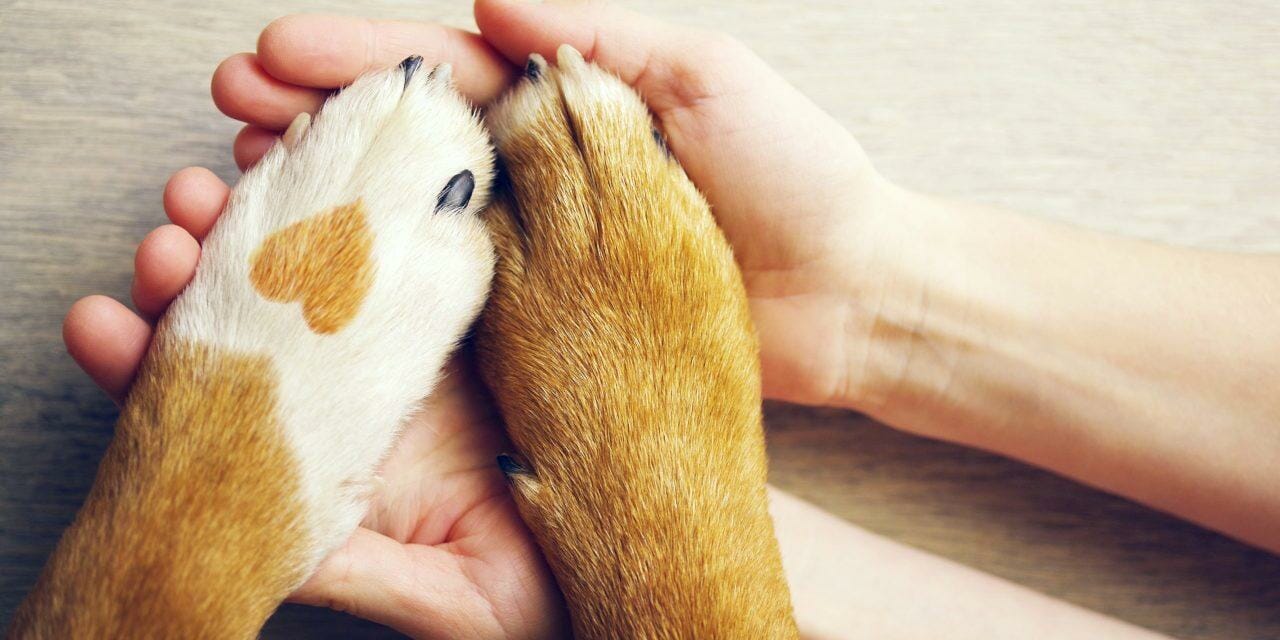Now more than ever, animal shelters are in desperate need of your help. As adoption events are cancelled and rescues close their doors to the public amid the coronavirus pandemic, the number of dogs and cats that will be euthanized could spike dramatically.
Unfortunately, shelters’ resources to save animals lives are limited. Food and space are costly and scarce, and without the help of the outside world, many rescues may be forced to do the unthinkable. We can’t let this happen.
Even if you’ve been financially impacted by this deadly disease, simple acts of generosity can help animals in their time of need. No deed is too small.
Here are 5 easy ways to help animal shelters during the coronavirus pandemic:
1. Foster or Adopt a Pet
Shelters are in desperate need of people to help care for thousands of abandoned dogs and cats, and those numbers are only expected to increase as the pandemic wears on. If you’re one of the millions of people forced to stay home from work during these trying times, consider fostering or adopting an animal.
Fostering is a great, short-term option. Even if you work long hours and don’t have the time to properly care for a pet after this outbreak passes, fostering until your job resumes could be a very rewarding experience. It might even boost your own health, as interacting with animals has been linked to lower cortisol levels (a stress-related hormone) and reduced blood pressure!
Adopting an animal is a much bigger commitment. If you’ve been considering adoption for a while and are adequately prepared, both socially and financially, for that responsibility, it’s the perfect time. Shelters are desperate, and you’d be doing more good now than later.
Do not, however, adopt an animal without carefully thinking it through. This is a very serious responsibility. Be sure to have a plan in place for after the novel coronavirus passes if you’re contemplating adoption.
2. Donate to Charity
If possible, donate to local and global animal rescues and charities. These organizations rely on donations to provide animals in need with lifesaving medical care, food, shelter and more.
From staff training and community outreach programs to electricity and water for their buildings, rescues need our support now more than ever. Organizations like Lady Freethinker directly support local animal shelters and use resources to battle global issues like the dog and cat meat trade. All donations go directly toward fighting back against animal cruelty and suffering.
3. Spread the Word on Social Media
Most local animal shelters operate via word of mouth. Sharing posts on social media, “liking” pages on Facebook, “following” rescues on Twitter, and other virtual gestures go a long way toward increasing organizations’ online exposure.
It may seem insignificant, but interacting with animal shelters’ social media platforms can get adoptable dogs and cats in front of suitable guardians, increase monetary and physical donations, and more. And all it involves is the simple click of a button.
After all, we’re all just quarantined and sitting around on social media anyway, right?
4. Craft Essential Shelter Items
If financial concerns are stopping you from donating money, donate your time to local animal shelters instead. Crafting essential shelter items, such as dog and cat beds, blankets and more, immediately helps animals in need and reduces rescues’ costs, as they no longer have to purchase these necessities.
All of this can be done from the comfort of your own home and involves rather inexpensive materials. From stitching and knitting to building with wood and metal, the shelter animals are sure to appreciate all your hard work.
Thanks to the internet, even if you don’t know how to stitch, knit or build things with your hands, you can learn! Below is just one example of hundreds of available videos on YouTube to get you started.
Crafting will benefit your overall health as well! Fight boredom and feel that sense of purpose, all while making the world a much more compassionate place.
5. Confront the Spread of Misinformation
It is crucial to stop the spread of misinformation during times that evoke panic and fear. There could be suitable pet parents who delay fostering or adopting an animal because of false reports that cats and dogs can spread COVID-19.
Despite statements to the contrary, the Centers for Disease Control and Prevention (CDC) and various doctors around the world insist dogs and cats can’t spread the virus to humans.
“At this time, there is no evidence that companion animals, including pets, can spread COVID-19,” the CDC wrote, “or that they might be a source of infection in the United States.”
Other experts agree.
“I think the idea that we’re going to give this virus to our pets or we’re going to get it from them is just nonsense,” said Dr. John Williams, chief of the division of pediatric infectious diseases at the University of Pittsburgh Medical Center. “We don’t have to worry about pets … Embrace your pets. Pets play a vital physio-psychological role for their [guardians], especially now when everyone’s feeling so isolated and alone.”
If you come across information from non-experts that suggests pets are spreading the virus, speak up. It could convince some people to do their due diligence, research the topic and decide fostering or adopting is right for them.
In one of their most vulnerable times, dogs and cats don’t need false rumors — instead, they need our help.








